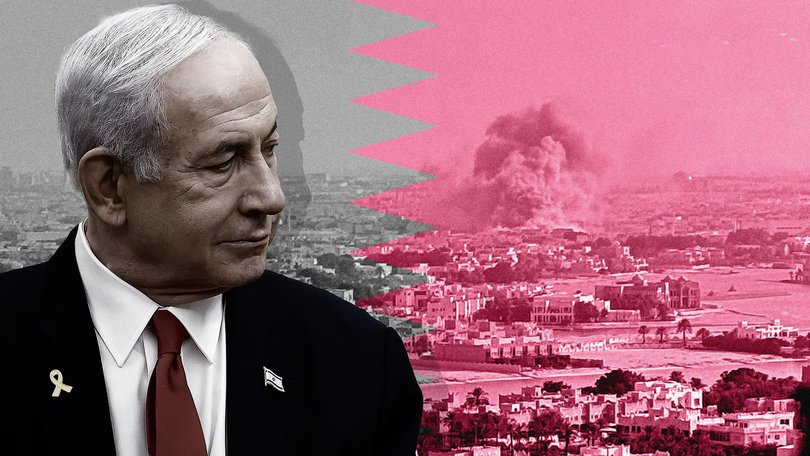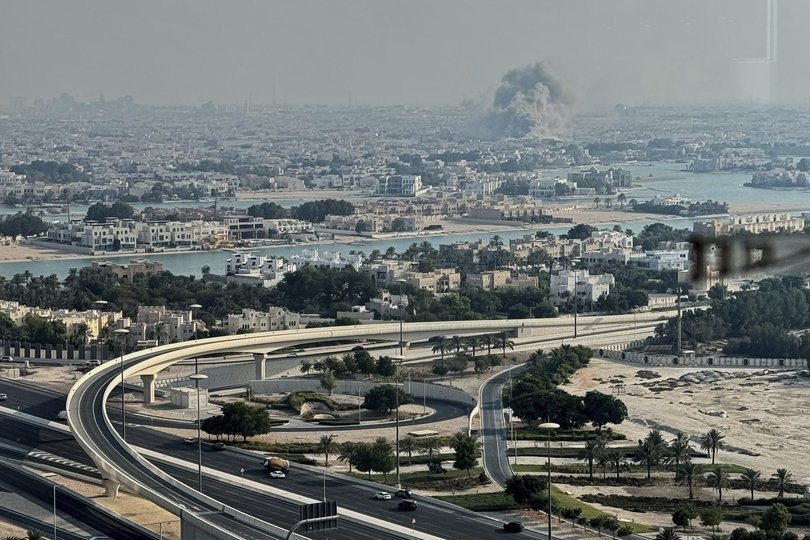ALLON LEE: Qatar is no impartial observer in this war, the nation is a backer of Hamas
ALLON LEE: For over a decade, Qatar has sheltered Hamas’ top leaders in the lap of luxury and supported the Islamist group diplomatically and financially.

Israel’s unexpected and bold surgical strike on a building in the Qatari capital of Doha where Hamas’ senior leadership was meeting has attracted the usual international flak.
Yes, Israel violated Qatar’s sovereignty (although this is akin to the US taking out Osama bin Laden, ”hiding” in Pakistan in 2011, and a legitimate exercise of the right to self-defence).
Nominally, Monday’s terror attack in Jerusalem that left six people dead, and was claimed by Hamas, was the trigger for the operation. It was a particularly cold blooded murder.
Sign up to The Nightly's newsletters.
Get the first look at the digital newspaper, curated daily stories and breaking headlines delivered to your inbox.
By continuing you agree to our Terms and Privacy Policy.Two Palestinian gunmen boarded a bus in Jerusalem and opened fire with automatic weapons.
But there were larger wheels turning.
In less than one month, the war Hamas started on October 7, 2023, when it slaughtered 1200 men, women and children in southern Israel and took hostage 250 more, enters its third year.
With Gaza in ruins, and approximately 50 hostages still to be freed — fewer than 20 of whom are thought to still be alive — there is little sign that the war will conclude any time soon.
Neither Israel nor Hamas has agreed to a temporary ceasefire, let alone a permanent one, despite months of intense negotiations, because the two sides’ strategic goals are completely contradictory.
From Hamas’ perspective, any deal that would see a release of all the hostages must ultimately be accompanied by an Israeli withdrawal from Gaza, allowing the terror group to resume control there and rebuild.
Despite an intense clamour in Israel for the release of the hostages and an end to the war, the Netanyahu Government is never going to agree to those terms. That would be regarded as an utter political and strategic failure and would certainly see Netanyahu’s coalition partners bolt from the Government.
Wednesday’s operation then was an effort to break the negotiation stalemate and pressure Hamas to relent, and agree to arrangements which will see it give up power over Gaza.
At time of writing, it is not clear what the fate of the intended targets was, or if it will galvanise negotiations by changing the calculus of the outside Hamas leaders living a life of luxury in Doha, as Palestinians in Gaza continue to suffer and demand an end to the war.
But the operation was not only aimed at Hamas. It was also designed to send a message to Qatar.
Contrary to its image as an impartial mediator trying to negotiate a ceasefire between Hamas and Israel, Qatar is the opposite of neutral. It is one of Hamas’ closest allies.

Both Hamas and Qatar belong to the Muslim Brotherhood and are committed to spreading its Islamist ideology. (Some assume that the presence of the US’s largest military base in the Middle East south of Doha means Qatar is moderate, but this ignores the fact that the Emirate views this base simply as an insurance policy against threats from its much more militarily powerful Iranian and Gulf neighbours.)
For over a decade, Qatar has sheltered Hamas’ top leaders in the lap of luxury and supported the Islamist group diplomatically and financially.
In 2012, Hamas’ then-chief Ismail Haniyeh crowed that “all of Doha is an office” for Hamas, “thanks to the love and cordiality that the Qatari leaders have provided for the Palestinians”.
It was Qatari billions brought into Gaza that helped fund Hamas’ terror infrastructure.
Qatar has also given Hamas unlimited space on its Al Jazeera media service to push anti-Israel propaganda, in return for exclusive footage of terror attacks against Israeli forces in Gaza since October 7.
Documents found by the Israel Defence Forces in Gaza revealed correspondence between Hamas and Al Jazeera to co-ordinate coverage of October 7 as a heroic military operation. Then there are the numerous Hamas terrorists who were found to be masquerading as Al Jazeera “journalists”.
And it’s not just Al Jazeera. The editor of the newspaper al-Sharq, which is owned by the Qatari royal family, has called for Hamas to kidnap more Israelis (he refers to them as “rats”).
So, it is hard to feel too much sympathy for this alleged violation of Qatari sovereignty.
Given Hamas’ decision to start a war with Israel that would inevitably lead to immense suffering and loss of life in Gaza, one could legitimately ask what, if any, pressure Qatar has put on Hamas to release the hostages and give up power over Gaza?
Some ask, who will risk “stepping up” to replace the Qataris in the negotiations if this is how Israel behaves. However, this ignores the role Cairo has also played to date in efforts to reach a ceasefire. Egypt, which shares a border with Gaza, has much more invested in ending the conflict and ensuring that Hamas is neutered.
Although Israel will doubtless face much condemnation over its Doha strike in the coming days, those who insist Hamas must have no role in governing a future Palestinian state — while also calling for an end to the war and the release of hostages, as Australia says it supports — must explain what alternative strategy could possibly achieve all those goals.
Allon Lee is a senior policy analyst at the Australia/Israel & Jewish Affairs Council
